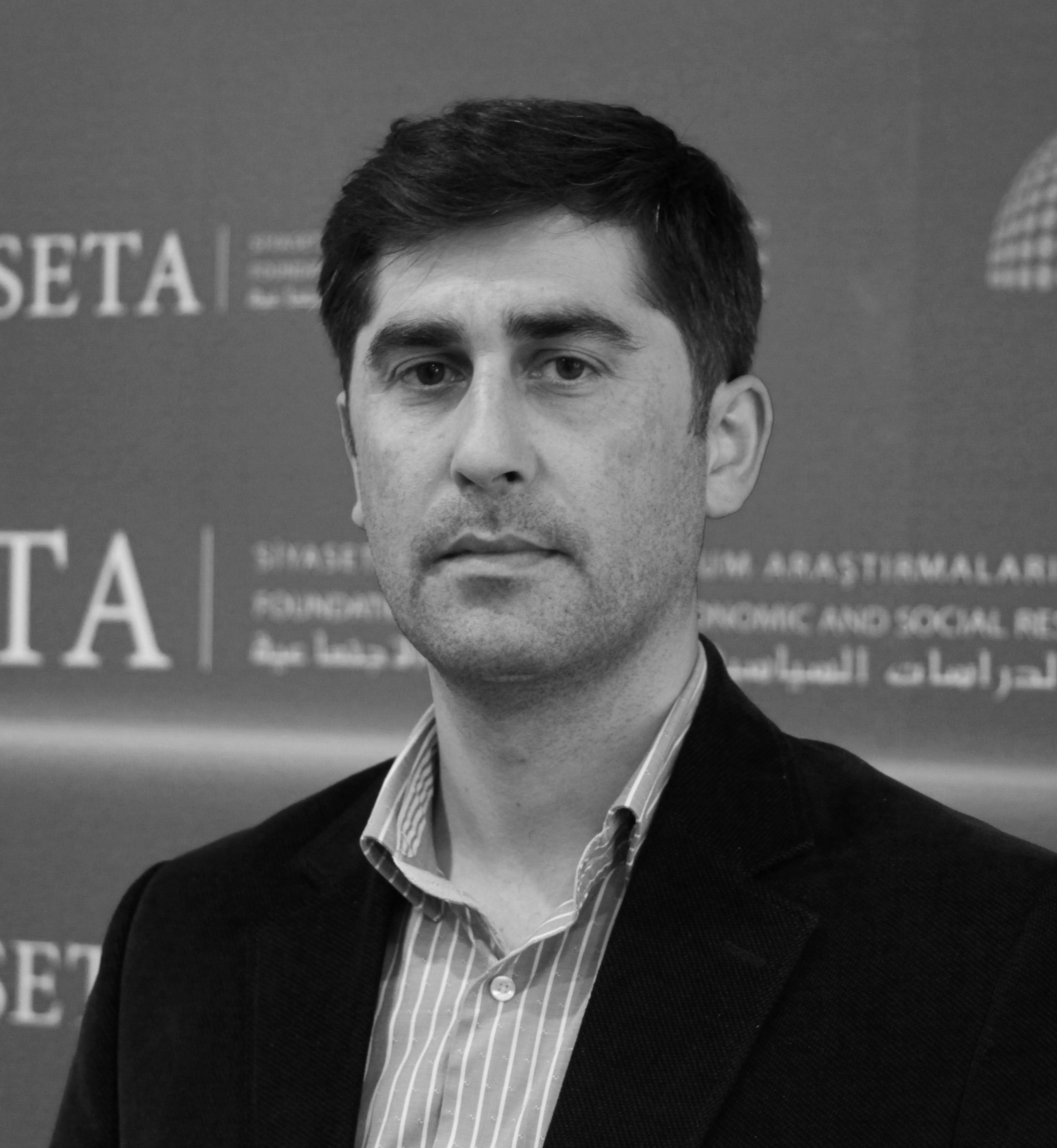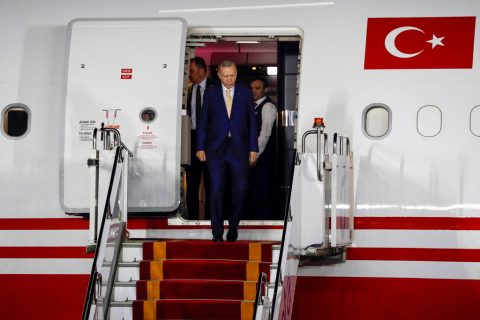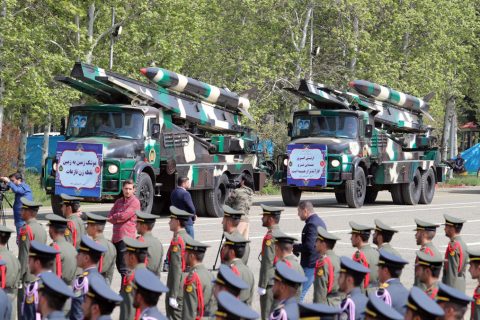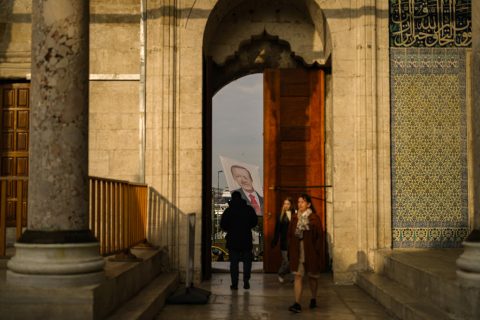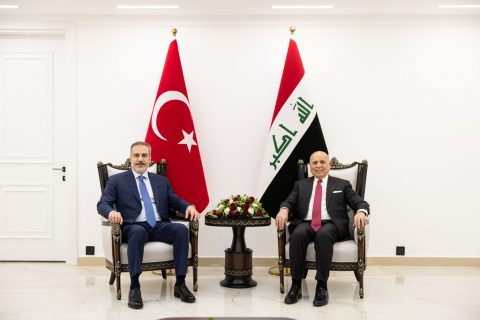Murat Yeşiltaş
Director, Foreign Policy
Assoc. Prof. Murat Yeşiltaş has completed his BA and MA at the Department of International Relations of Sakarya University, in 2003 and 2009, respectively. He earned his PhD at the Department of Political Science and International Relations at Marmara University in 2012 with the thesis titled “Locating Turkey: Geopolitical Mentality and the Army in Turkey.” Yeşiltaş was a visiting researcher at the Department of European Studies and International Politics of Lancaster University between 2008 and 2009. He was a visiting researcher at Virginia Tech’s Institute of Government and International Relations in 2010-2011. Currently, Yeşiltaş is an Assoc. Professor in the Middle East Institute at Sakarya University. He also holds the position of director of security studies at SETA Foundation, Ankara, Turkey.
Dr. Yesiltas current researches are on international security, terrorism, military studies ethnic and religious radicalization, non-state conflicts, and the Kurdish affairs. He is currently working on the following research projects The Rise of Kurdish Geopolitical Space, Border Security in the Middle East and The New Regional Security Project in the Middle East (NRSP). His recent books are Türkiye Dünyanın Neresinde? Hayali Coğrafyalar, Çarpışan Anlatılar (edit) (koç Ünivesitesi Yayınları, 2015) Jeopolitik Zihniyet ve Türkiye’de Ordu (Kadim, 2016), Non-State Military Actors in the Middle East: Geopolitics,Strategy and Ideology (edit) (Palgrave McMillan,2017)
Dr. Yesiltas current researches are on international security, terrorism, military studies ethnic and religious radicalization, non-state conflicts, and the Kurdish affairs. He is currently working on the following research projects The Rise of Kurdish Geopolitical Space, Border Security in the Middle East and The New Regional Security Project in the Middle East (NRSP). His recent books are Türkiye Dünyanın Neresinde? Hayali Coğrafyalar, Çarpışan Anlatılar (edit) (koç Ünivesitesi Yayınları, 2015) Jeopolitik Zihniyet ve Türkiye’de Ordu (Kadim, 2016), Non-State Military Actors in the Middle East: Geopolitics,Strategy and Ideology (edit) (Palgrave McMillan,2017)
-
Opinion
Erdoğan’s landmark visit to Iraq
President Recep Tayyip Erdoğan’s recent visit to Iraq could mark the beginning of a new chapter in the longstanding relationship between Türkiye and Iraq. During his visit to Baghdad, Türkiye and Iraq signed a strategic framework agreement that addresses a variety of issues, ranging from security to economic cooperation. This agreement represents the culmination of nearly a year of productive high-level discussions between the two countries. Furthermore, President Erdoğan’s first visit to Iraq since 2011 has established new connections between Türkiye, Iraq, the United Arab Emirates (UAE) and Qatar, enhancing the region’s geo-economic landscape.
-
Opinion
The Israel-Iran war gamble
The Israeli attack on the Iranian Consulate in Damascus has escalated regional tensions to unprecedented heights, once again thrusting the intricate geopolitics of the Middle East into the spotlight. Iran’s retaliation to this aggression has resonated not only within the region but also on a global scale. Its response was twofold: to display their military prowess and to convey a political message to the international community. This marked the first instance since 1973 of a state responding militarily to Israel at a conventional level, thereby disrupting the longstanding status quo of Israeli immunity. Through these actions, Iran seeks to enhance its deterrence against regional and global actors while simultaneously solidifying its domestic political position.
-
Opinion
Unpacking the AK Party’s 2024 electoral setback
On March 31, the local elections profoundly transformed the landscape of Turkish politics. For the first time since its ascendancy in 2002, the Justice and Development (AK Party) concluded the elections as the runner-up, marking a significant shift in the nation’s political dynamics.
-
Opinion
Local elections and future of Turkish politics
It is still unclear to what extent the local elections to be held on Sunday will affect Turkish politics. In terms of macro-political dynamics, the main patterns of politics in Türkiye are not expected to change. After the local elections, President Recep Tayyip Erdoğan will have more than four years ahead of him.
-
Opinion
Strategic rationality behind Türkiye-Iraq rapprochement
Recent months have seen a flurry of diplomatic activity between Türkiye and Iraq, culminating in a significant agreement in Baghdad last week. This accord signals a mutual eagerness to close a chapter of discord and paves the way for a comprehensive consensus on a range of issues, including a unified stance against the PKK. With President Recep Tayyip Erdoğan’s impending visit to Baghdad, and potentially Irbil, in April, this strategic alignment not only promises a sustainable framework for bilateral ties but also portends regional ramifications.
